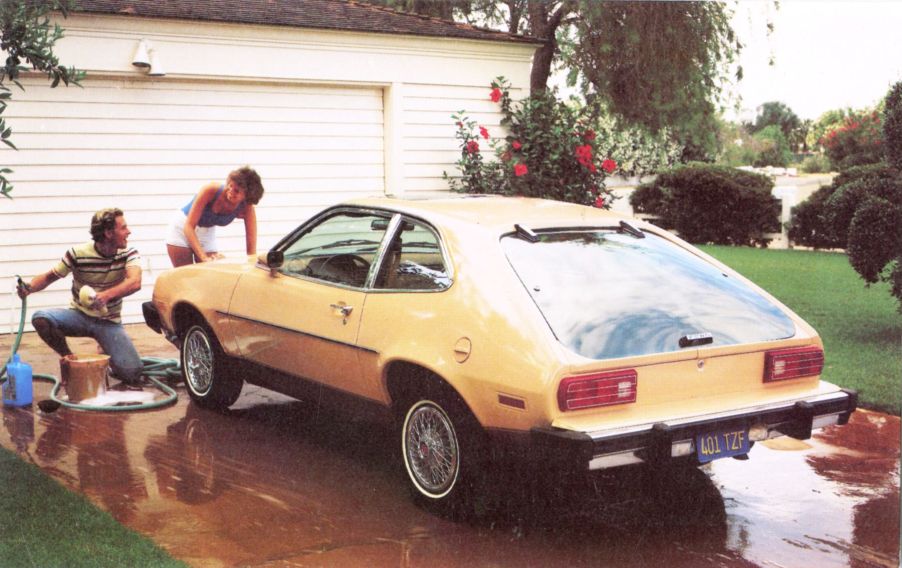
What Is ‘Lemon Law’ Legislation?
Sometimes, drivers are stuck with a vehicle with issues that aren’t subject to a recall or can’t be repaired easily at a dealership or mechanic’s shop. However, if you’re stuck with a car that appears unfixable, you may have some recourse. Usually, your best option is to start with our state’s respective lemon laws. So, first, let’s talk a bit about what lemon laws are, how they can help you get a refund or replacement for a defective car, and their relationship with car recalls.
What are lemon laws?
Broadly speaking, lemon laws refer to statutes that protect consumers if they buy a defective product. They are most commonly associated with motor vehicle purchases. However, depending on the state, lemon law purchases may also pertain to marine vehicle purchases and other big-ticket purchases.
The most notable lemon law at the federal level is the Magnuson-Moss Warranty Act of 1975. This law covers purchases covered by warranty and ensures that the warranty language itself cannot be drafted or used against a consumer who has been sold a defective product. The law further ensures that the company providing the warranty must provide consumers with repairs or replacement options when their purchase proves defective.
This federal act is considered a lemon law but only covers products under warranty. What about products not covered by a warranty or past the warranty period? In the latter case, it’s not uncommon for consumers to learn of a major issue once the warranty has expired. In these cases, many states have stepped in with their own lemon laws.
Typically these laws allow a consumer to seek repairs or replacement for free under certain conditions. Additionally, lemon laws usually contain provisions for a consumer pursuing arbitration or filing lawsuits against the company that sold a defective product if they refuse to repair or replace it fully or within a reasonable time frame. If the company loses a lawsuit brought under a state’s lemon laws, that may stand to win more damages than it usually would.
How laws for lemons vary by state
Because different states handle consumer protections in unique ways, lemon laws vary depending on where you are. For example, Wisconsin‘s lemon law entitles you to a refund or replacement within the first 12 months of its warranty coverage if it is out of service for more than 30 days or cannot be fixed after four attempts. By contrast, New York‘s lemon law covers defects discovered in the first two years of warranty coverage.
However, according to The Lemon Law Experts, the common thread between all these Lemon Laws is that if your vehicle qualifies as a lemon (read: defective), you are owed a refund or a replacement. Lemon laws typically include a provision establishing a “lemon law buyback.” Lawyers 4 Lemons notes this term refers to repurchasing your defective vehicle for the amount you paid, including taxes and fees, but excluding a fee for your mileage. You may also be entitled to any relevant attorney and court costs you had to pay to receive your refund.
Depending on your state, your local lemon law may include used vehicles. For example, New York considers defective cars lemons under certain circumstances, while Wisconsin does not. It’s important to check before purchasing a used car. If your state does not consider used cars to be lemons, it may be best to buy a certified pre-owned vehicle if you’re not looking to buy a new one.
Limitations on ‘lemon laws’

Even in states with lemon laws, consumers will find these protections are not absolute. If you voided your warranty by performing an aftermarket modification, or if your warranty expired, you may no longer have any recourse. Additionally, you may be stuck with your defective vehicle if you’ve put more miles on your car than your state law specifies.
These laws can be tricky. For example, you may still be eligible for protection under Wisconsin’s lemon law if your first repair attempt was made while your warranty was still current. If you’re unsure whether you’re eligible, it’s best to check out official resources on your state’s laws from your state’s Attorney General. It may be best to consult an attorney if you’re still unclear.
It is also best to consult outside counsel if you believe you’re entitled to a replacement or refund, but your local dealership denies your request. If you think your safety issue isn’t isolated, it’s a good idea to file a complaint with the National Highway Traffic Safety Administration (NHTSA), which, according to Consumer Reports, will investigate. If you’re right, the NHTSA may order a recall and compel the manufacturer to handle repairs or issue a refund or a replacement. In either case, it may be advisable to consult with an attorney to learn your entire range of legal options.


